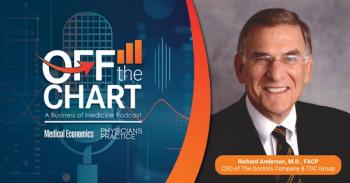
Medical residents angered at extended work hours
New ACGME work hours upset medical residents
After the Accreditation Council for Graduate Medical Education increased the
Further reading:
“Everyone I know who is working 24 or 28-hour shifts is exhausted,” says Samantha Harrington, MD, an intern at Cambridge Health Alliance in Boston. “People are lying if they say, ‘it’s great.’ The vast majority of residents and medical students I’ve talked to are disappointed and anxious. These changes point to the overall question of how we are overseeing our residents’ well-being. This is a step in the wrong direction.”
The revised hours cap interns at a maximum of 24 hours on a shift, plus up to four extra hours to manage care transition time, according to an ACGME memo issued by Thomas J. Nasca, MD, MACP, Chief Executive Officer. In 2011, the ACGME had restricted interns’ hours to 16 per shift, and the change returns first-year residents to the same schedule as more advanced residents and fellows.
“The hypothesized benefits associated with the changes made to first-year resident scheduled hours in 2011 have not been realized,” Nasca says in the memo. “The disruption of team-based care and supervisory systems has had a significant negative impact on the professional education of the first-year resident, and effectiveness of care delivery of the team as a whole.”
Jason Sood, DO, a second-year family medicine resident at several hospitals of the Rowan School of Osteopathic Medicine, says he is not surprised by the changes. “Hospitals, for their bottom line, it makes sense not having to hire physician extenders,” Sood says. “We’re cheap labor.”
Popular online:
Sood says he has worked two and sometimes even three 24-hour shifts in a workweek. He’s had two physician friends get into car accidents after completing 24-hour shifts, and he’s known many more who have had close calls. “And those don’t even get reported,” Sood says.
Joel Warsh, MD, MSC, a Los Angeles pediatrician who just finished his residency last year, was really upset with the ACGME’s decision. During his residency, he had several physician friends get involved in car accidents after completing long shifts, and he had another physician friend commit suicide, in part, because of the long hours.
“I had one friend, who, after a 30-hour shift, was about to drive home, but fell asleep in the car and woke up six hours later,” Warsh says. “That’s scary to think that somebody would have to drive in that condition, but what are you supposed to do if you are a resident?
Some residents use caffeine to wake up and then use Ambien to get to sleep.
“As part of my family medicine (practice), I treat medical students,” Sood says. “There are a good number of them who are on anti-anxiety and anti-depression medications, and some are also on stimulants for ADHD. The thing is, for some of them, they didn’t have these conditions in high school or college, or if they did, they got worse during residency.”
Sood has noticed that sometimes the trashcans get filled up with empty Red Bull and Monster energy cans by the end of a shift.
“I don’t believe that people (making these decisions) are intentionally trying to hurt us,” Sood says. “These are people who had it worse, working 36 hour shifts or 110 hours per week. There’s just this long-standing history of abuse.”
Related:
Warsh says when he was a resident, there were rotations where he’d have a 24 to 30-hour shift every fourth or fifth night. “But there was one week where we did 30-hour shifts three (times) in a row, and that was the worst I ever felt,” Warsh says. “We know (getting enough) sleep is good for healing and for thinking, and now, they’re asking first-year residents to (work without getting enough sleep) and it’s so scary for me. I feel we are going in the wrong direction.”
Heather Appel, communications director for the Committee for Interns and Residents union, says many residents are hesitant to speak out about the issue. “We are trying to change the culture around speaking out,” Appel says. “They’re very happy to share their (bad) experiences working 24-hour shifts anonymously, but they’re afraid to talk about it publicly.
“Residents are called residents because historically, they used to live at the hospital. It was a much different lifestyle then. Today, medicine has become more complex, and residents have become a lot more diverse. Many residents have families (and other obligations) so I think that the residency culture has not caught up with the reality.”
In case you missed it:
Appel says union members are not surprised by the changes, and they’re not only concerned about the long shifts, but also the ACGME’s change in language, removing the word “honest” from a statement that residents must accurately report their hours.
The union, which represents about 12% of all residents nationally, is working on different initiatives to deal with the issue of work and life balance, and the union recently formed a committee to address all of the non-educational or “scut” work that residents actually do.
“It’s one thing if you’re working in the hospital a long time because you’re seeing patients every minute,” Appel says. “But residents spend an outrageous amount of time dealing with things like non-working fax machines or trying to call another hospital to request a patient’s records. Those are not things they went to medical school for, and it’s very demoralizing.”
Hot topic:
In the wake of the new rules, Warsh advises residents to carefully consider lodging choices-he rented an apartment across the street from the hospital so he didn’t have to drive. Sood says he uses melatonin to help him get to sleep after an especially long shift, and he says having a union, where residents can support each other, can help residents not feel so alone or isolated.
Pamela Wible, MD,
“They need support,” Wible says. “Every day, I’m on the phone talking to a resident who is anxious, depressed or suicidal, wondering how he or she is going to get through the next shift. The help we need will (likely) come from legal sources and public outrage.”
Warsh advises his colleagues to help residents out if they see they’re working a 24 or 30-hour shift.
“Comfort them with a hug if they need it or bring them a snack or dinner,” Warsh says.
At Cambridge Health Alliance, neither interns nor residents are required to work such long shifts-they’re typically 14 to 16-hours long.
Elisabeth Poorman, MD, MPH, initially applied to the residency program at Cambridge Health Alliance in Boston because none of the residents she encountered ever bad-mouthed patients, but she ended up appreciating her residency there for a different reason: she never had to work more than 16 hours in a row for any of her shifts and for any of her rotations.
“In retrospect, I think that’s the most important decision I’ve ever made,” says Poorman, a primary care physician who finished her residency last year. “It requires a more thoughtfulness (on the part of program directors) to limit residents’ work hours, but it can be done.”
Poorman says even with her residency’s shift limits, she still ended up working 70 to 80 hours each week, which is the maximum number of hours residents are supposed to work.
“If you can’t educate someone in 16-hour days, then you need to think about how you’re educating them,” Poorman says. “Within those hours, you should be able to teach them to become a competent doctor.”
“I think (this decision) will make more people want to come to our program because we’re treated kinder than at other programs,” Harrington says. “We’re still learning plenty, and we’re still working plenty long hours, but we’re just working them in a more reasonable manner.”
Newsletter
Stay informed and empowered with Medical Economics enewsletter, delivering expert insights, financial strategies, practice management tips and technology trends — tailored for today’s physicians.






